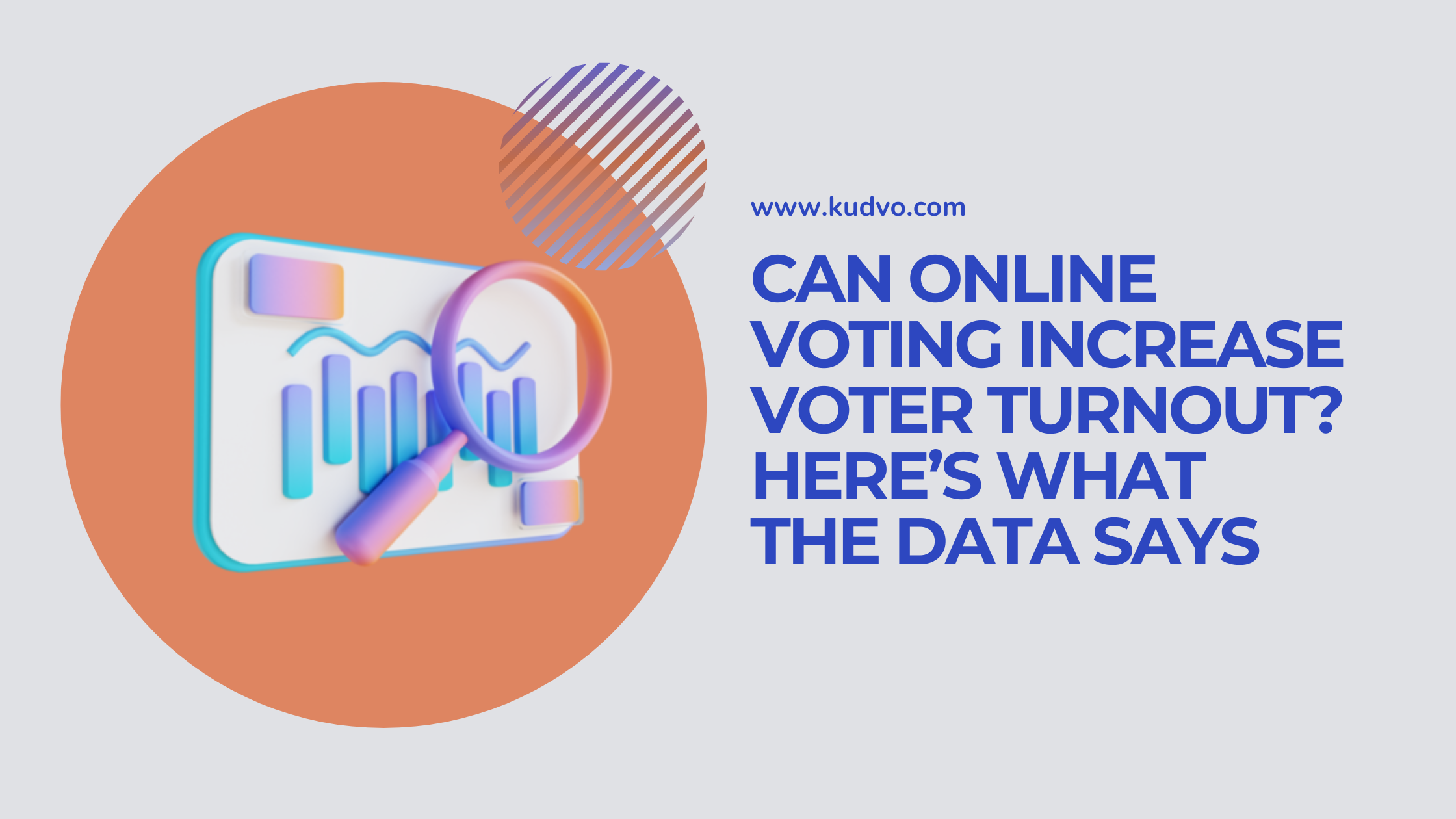Can Online Voting Increase Voter Turnout? Here’s What the Data Says
Introduction
Why do so many people skip elections—even when their voice matters?
Busy schedules, transportation issues, long lines—these are just a few of the reasons voters cite for staying home. Enter online voting: a promising solution designed to make participation easier and more convenient. But the big question remains: Does it actually work?
In this post, we’ll dive into real-world data, explore pilot programs, and break down whether online voting lives up to the hype when it comes to boosting voter turnout. By the end, you’ll have a clearer understanding of the impact—and potential—of digital ballots.
This post is brought to you by Kudvo, a platform helping modernize and simplify secure online voting.
1. Why Voter Turnout Is a Challenge
Low voter turnout is a common issue across democracies. In the U.S., for example, only 66.8% of eligible voters participated in the 2020 presidential election, even though it was the highest turnout in decades.
Common barriers to voting include:
Work or family obligations
Lack of transportation
Limited polling locations in rural areas
Long lines at polling stations
Physical disabilities or health concerns
Confusion around voter registration or deadlines
When convenience is limited, motivation alone isn’t always enough to get people to the polls.
2. Online Voting: Making Participation Easier
Online voting offers a more accessible and convenient alternative by allowing voters to cast ballots from anywhere, on any internet-connected device.
Key benefits that may lead to higher turnout:
24/7 Access
No need to take time off work or arrange transportation.
Inclusive for People with Disabilities
Easier to accommodate screen readers, voice navigation, and other assistive tech.
Eliminates Location-Based Barriers
Useful for overseas citizens, military personnel, and rural voters.
Reduces Election-Day Stress
No waiting in long lines or racing to beat closing times.
But convenience alone isn’t the full story. We need to look at the actual numbers.
3. What the Data Really Says
Several studies and pilot programs offer insight into online voting’s impact on turnout:
📊 Estonia: The Digital Pioneer
Estonia has offered nationwide online voting since 2005. By 2023, 51% of all votes were cast online during parliamentary elections.
Turnout effects? While the overall turnout hasn’t dramatically spiked, digital participation is steadily growing, especially among younger voters.
It’s now seen as a preferred method—not just an alternative.
📊 Utah County, Utah (2019 Municipal Election)
A pilot project allowed mobile voting for overseas voters.
Result: Turnout among eligible voters rose from 21% in 2017 to 39% in 2019, more than an 80% increase.
📊 Canada’s Municipal Online Voting Trials
Ontario municipalities that introduced online voting saw turnout increases of 3–7%, particularly in areas with older populations or poor weather conditions.
Summary:
Younger and tech-savvy voters are most likely to use online voting
Convenience boosts participation in local and lower-profile elections
Voter confidence in the system influences adoption rates
4. Caveats: Online Voting Isn’t a Cure-All
While the numbers are promising, online voting isn’t a guaranteed fix.
Considerations:
Digital Divide: Not everyone has access to high-speed internet or modern devices
Security Concerns: Fear of hacking or election interference can discourage participation
Trust and Transparency: Public confidence in the system is key
That’s why platforms like Kudvo emphasize security, transparency, and accessibility—three pillars that help voters feel safe and confident using digital ballots.
Conclusion
So, does online voting increase voter turnout? In many cases, yes—but it depends on how it’s implemented.
When done right, online voting removes key barriers, makes elections more inclusive, and boosts participation—especially in groups often underrepresented at the polls. But it must be supported by education, trust, and infrastructure to reach its full potential.
Ready to modernize your election process? Learn how Kudvo can help you launch secure, accessible, and trustworthy online voting today.
